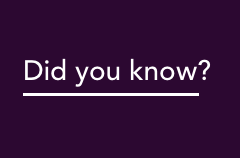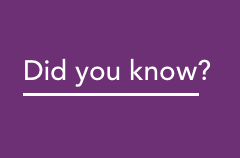Energy markets and systems
Australia’s energy system consists of a number of wholesale and retail markets, electricity and gas systems, and information services. This page provides an overview of these markets and services, as well as the electricity and gas systems that they support.
Electricity
AEMO operates two wholesale electricity markets in Australia: the National Electricity Market (NEM), which operates in eastern and south-eastern Australia, and the Wholesale Electricity Market (WEM), which operates in Western Australia.
They aim to support greater competition and investment in the electricity industry and allow generators and wholesale purchasers greater flexibility in how they sell or buy energy.
National Electricity Market (NEM)
The NEM is a wholesale electricity market where electricity is sold by generators and bought by retailers (who on-sell it to consumers) or large-scale customers. It operates on one of the world’s longest interconnected power systems, stretching from Queensland to South Australia and Tasmania.
The market and power system connects New South Wales, the Australian Capital Territory, Queensland, South Australia, Victoria and Tasmania; energy is generated and used in each region and traded between regions. Western Australia and the Northern Territory are not connected to the NEM, primarily due to the distance between networks. There are more than 300 registered participants in the NEM, including market generators, transmission network service providers, distribution network service providers and market customers.
AEMO manages both the wholesale markets and the power system, as well as the retail markets that underpin the wholesale market.
Additional information
Wholesale Electricity Market (WEM)
Like the NEM, the WEM is an electricity market that enables wholesale electricity sales between generators and retailers, large-scale customers and demand side participants. The market supplies energy to south-west WA and operates on the South West Interconnected System (SWIS). The Reserve Capacity Mechanism, which is unique to the WEM, ensures there is sufficient generation to meet demand at all times.
There are approximately 88 WEM Participants, including Market Generators, Network Operators and Market Customers.
AEMO manages both the WEM and the SWIS. As part of the WEM, AEMO also operates the Short Term Energy Market (STEM), an energy-only forward market to support trading around bilateral contract positions – it determines the quantities that generators sell to AEMO, the quantities that retailers buy from AEMO, and a single clearing price for each trading interval.
The WEM has an additional capacity market, the Reserve Capacity Mechanism (RCM), which ensures that there is sufficient generation capacity in the SWIS.
Additional information
Gas
Most wholesale gas is sold under bilateral arrangements between producers, retailers and major users. AEMO operates a number of wholesale markets including the Declared Wholesale Gas Market (DWGM) in Victoria, Short Term Trading Market (STTM) hubs in Sydney, Brisbane and Adelaide, the Gas Supply Hub (GSH) in Wallumbilla and Moomba, and a pipeline capacity auction and trading platform that supports secondary trading and encourages gas and pipelines to be used efficiently.
In addition to the wholesale gas markets, Australia also has retail gas markets, which promote competition between retailers and allow consumers to choose their supplier.
The Gas Bulletin Board (GBB) covering eastern Australia and Western Australia Gas Bulletin Board (WA GBB) support the gas markets by providing accurate market and system information to participants.
Additional information
Gas Bulletin Board (GBB)
The GBB provides gas market and system information covering all major gas production fields, major demand centres and natural gas transmission pipelines in NSW, the ACT, Queensland, SA, Victoria and Tasmania. In providing accessible and up-to-date data and information, it helps to improve decision-making and trading in gas commodities and pipeline trading. It is operated by AEMO.
Additional information
Western Australia Gas Bulletin Board (WA GBB)
Like the GBB, the WA GBB provides gas market and system information. Operated by AEMO, it publishes forecast and historical data on the production, transmission, storage and use of natural gas in Western Australia.
Additional information
Declared Wholesale Gas Market (DWGM)
Operating in Victoria, the DWGM is a wholesale market that allows competitive and dynamic trading on injections and withdrawals from the Victorian Declared Transmission System (DTS), which links producers, major users and retailers.
The market is unique in Australia as gas production and storage facilities, and interstate pipelines, are directly connected to the market, and AEMO operates the DTS pipelines and compressors (which are owned by APA Group), as well as the scheduling of the DWGM. This enables AEMO to report and act upon supply constraints and high demand conditions to manage system security, including intervening in the market when necessary.
The DWGM operates in a similar way to the NEM: all DTS gas flows are scheduled by AEMO, with producers, retailers and major customers bidding to buy and sell gas. There are approximately 60 participants in the DWGM.
Additional information
Short Term Trading Market (STTM)
The STTMs are hub-based wholesale gas markets that support short-term trading between gas shippers (who ship gas on the transmission pipelines supplying the hub) and gas customers, who typically include retailers and major gas users.
The STTMs are scheduled once per day at defined hubs in Sydney, Brisbane and Adelaide, using bids and offers to schedule deliveries and withdrawals from gas pipelines at the hubs for the following day.
While AEMO operates the STTMs, it doesn’t operate the transmission pipelines or the gas distribution networks. There are approximately 40 participants in the STTM.
Additional information
Gas Supply Hub (GSH)
The GSH is a wholesale market that supports the efficient trade and movement of gas between regions. Through an electronic exchange, GSH participants trade short-term physical gas products at the pipelines in Wallumbilla (in Queensland) and Moomba (in northern SA). The GSH is a voluntary trading market and complements trades that occur outside of the market.
AEMO settles transactions, manages prudential requirements and provides reports, but does not operate the transmission pipelines that supply these hubs. There are approximately 15 participants in the GSH.
Additional information
Pipeline Capacity Trading (PCT)
Pipeline capacity refers to the right to transport gas through a transmission pipeline. PCT, therefore, allows participants to trade spare pipeline capacity, including firm park services, firm forward haul services and firm compression services. It applies to gas transmission pipelines and compressors, which are used to transfer gas between pipelines (which are jointly referred to as ‘transportation services’).
PCT includes the Capacity Trading Platform (CTP) – an exchange that forms part of the GSH – for trading secondary capacity, as well as a Day-Ahead Auction for contracted but un-nominated capacity. The Day-Ahead Auction occurs shortly after capacity trading closes.
While AEMO operates the PCT, it does not operate the transmission pipelines or the compressors.
Additional information
Gas Retail Markets
The gas retail markets allow energy retailers to sell gas to residential and business customers. They provide the framework for retailers to sell gas to customers; they facilitate competition between retailers (referred to as ‘retail contestability’) by offering consumers a choice of provider; and they allow gas usage to be allocated to retailers.
AEMO supports gas retail markets in NSW, the ACT, Queensland, SA, Victoria and WA, facilitating 5.2 million connections (Tasmania and NT do not have gas retail contestability). It provides the infrastructure that allows customers to choose any licensed retailer of their choice and facilitates the interactions between industry participants that supports the effective operation of the market.






